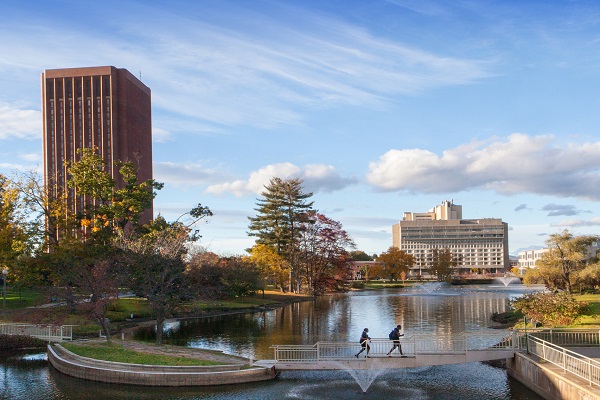University of Massachusetts Amherst: International Climate and Cryosphere Office Coming to UMass Amherst, Thanks to $2.5 Million Grant from NSF and NASA
Thanks to a $2.5 million grant from the National Science Foundation and NASA, the international office of the Climate and Cryosphere (CliC) project, a core initiative of the World Climate Research Program (WCRP), will make its home for the next five years on the campus of the University of Massachusetts Amherst. Two UMass Amherst professors, Rob DeConto, professor of geosciences and director of the School of Earth and Sustainability, and Raymond Bradley, Distinguished Professor of Geosciences, will lead the project.
Image
Raymond Bradley
Image
Rob DeConto
CliC focuses on research that improves scientific understanding of the cryosphere, or the frozen portions of the planet, including sea ice, icebergs, glaciers, ice sheets, lake ice, permafrost and snow cover, and the cryosphere’s various interactions with the global climate system. Furthermore, in a warming world, CliC supports cryospheric observations and analyses that can help us to detect climatic changes and understand their impacts.
“Across all mountain regions of the world, snow cover and glacier ice are rapidly disappearing,” says Bradley. “This disappearance is affecting mountain communities and water resources, and often creates hazardous conditions as lakes develop in narrow valleys. CliC will address these changes as global warming leads to more and more unforeseen consequences.”
CliC is one of the WCRP’s core projects. The WCRP is co-sponsored by the United Nation’s World Meteorological Organization, UNESCO’s Intergovernmental Oceanographic Commission and the International Science Council. The overarching goal of the WCRP is to promote climate science in support of the United Nations Framework Convention on Climate Change, including the Paris Agreement.
The CliC project office and its staff, currently located in Geneva, will be moving to the UMass Amherst and the Department of Geosciences later this fall. CliC will facilitate new and emerging science initiatives, coordinate outreach to the international climate-science community and engage the general public in understanding the implications of ongoing changes in climate and the cryosphere.
DeConto, who studies climate change impacts on glaciers, ice sheets, and sea level rise emphasizes that “CliC’s move to UMass highlights the University’s international reputation in climate and cryosphere science. The office will add substantially to our visibility and provide new opportunities for our campus to have impact on climate science and climate policy worldwide.”

